Cooking Class 2


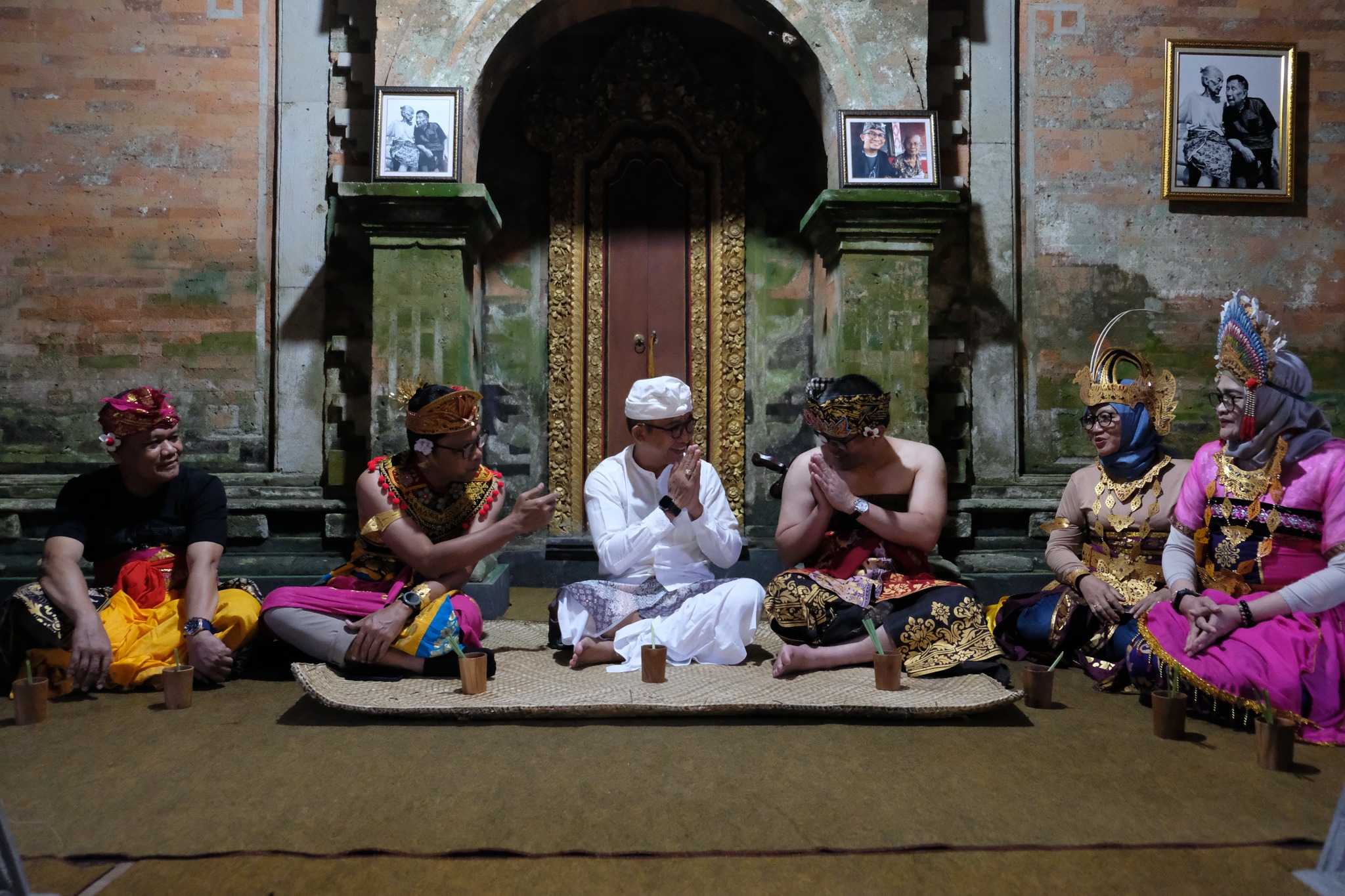
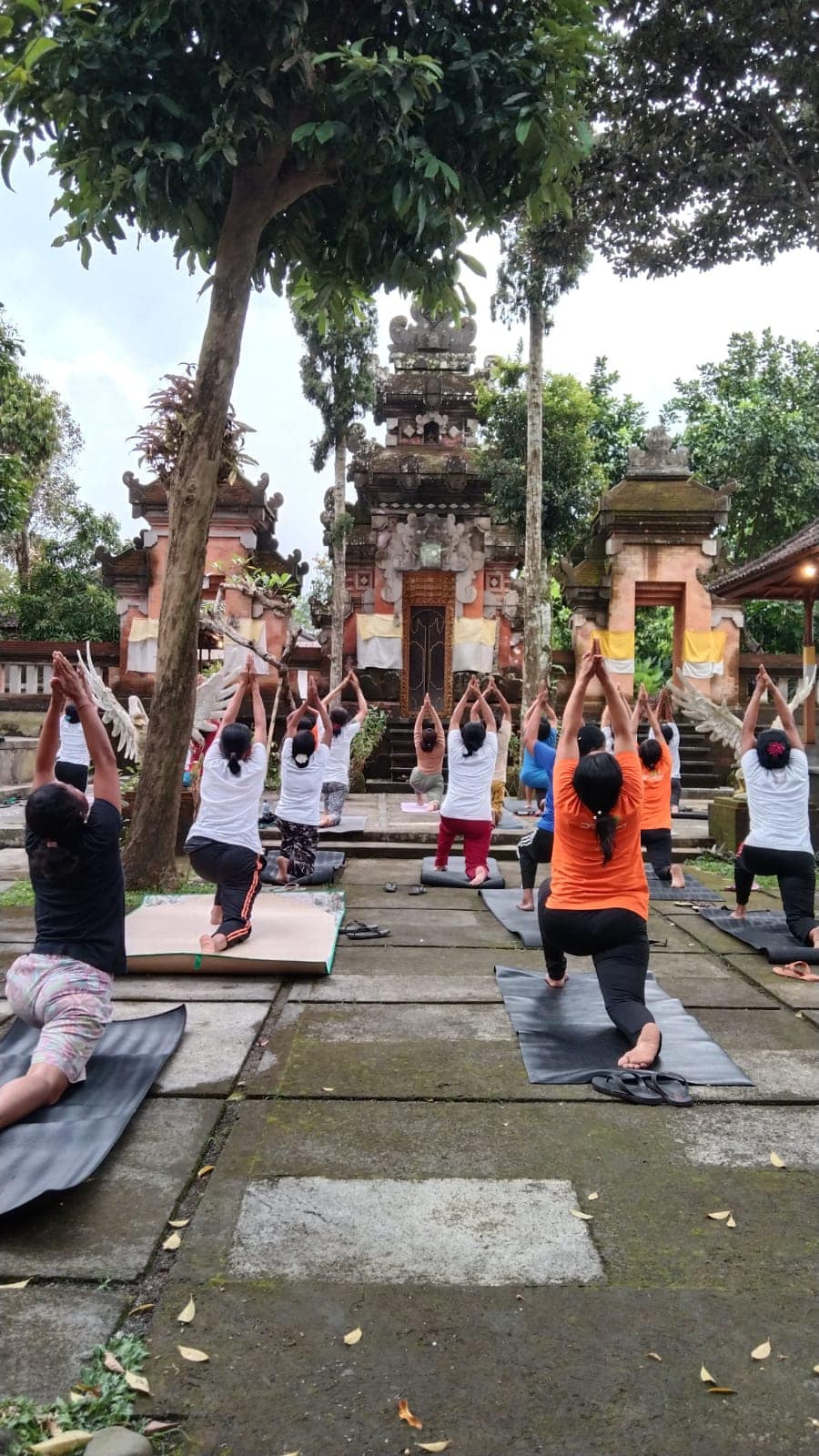
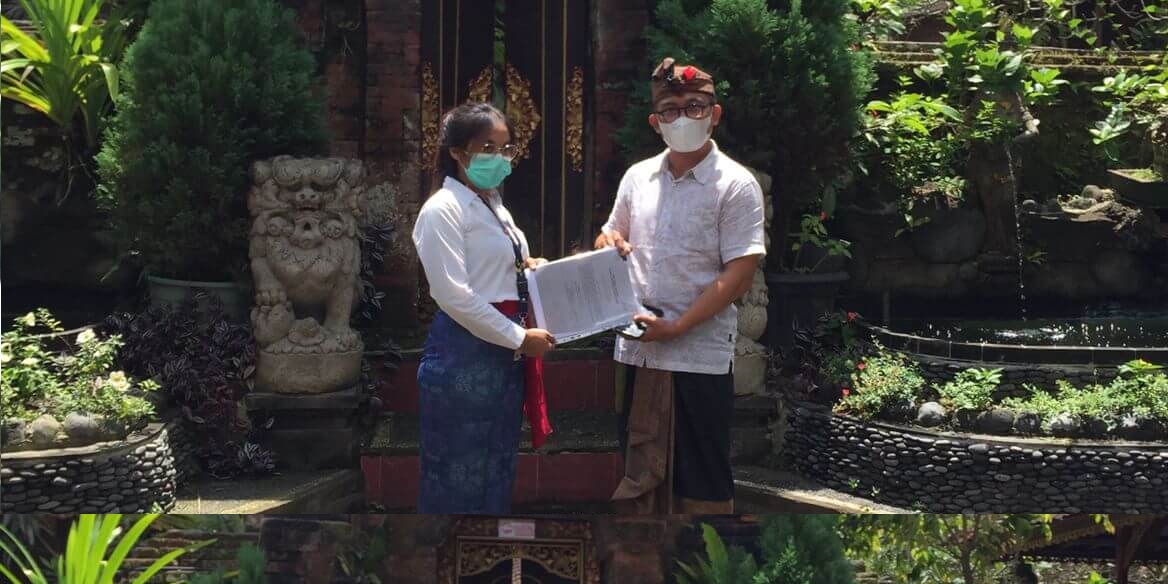
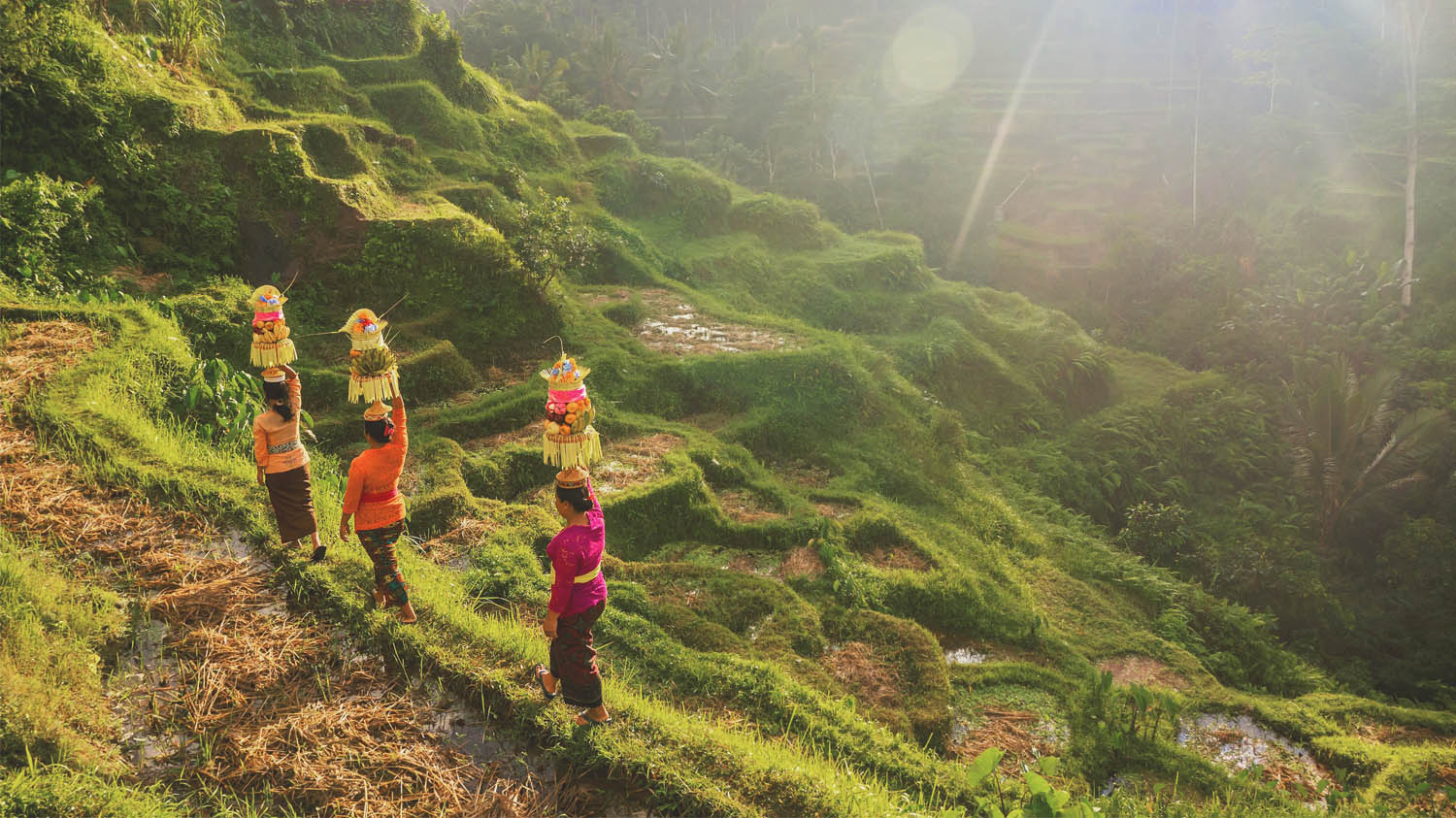
No trip to Bali is complete without a visit to one of the island’s gorgeous rice terraces. You’ll see them everywhere as you motorbike or drive around, but if you want to visit the big kahuna of rice fields, Tegalalang Rice Terrace. This is the famous rice terrace near Ubud that you’ve probably seen in everyone and their mother’s Instagram photos. It’s touristy and most people visit for the photo opp, but these fields really are stunning. Unlike some places around the world that have been spoiled by tourism, the Tegalalang Rice Terraces are definitely still worth visiting despite their notoriety. That being said, you can definitely ensure you have a less crowded and overall better quality experience if you follow some basic tips.
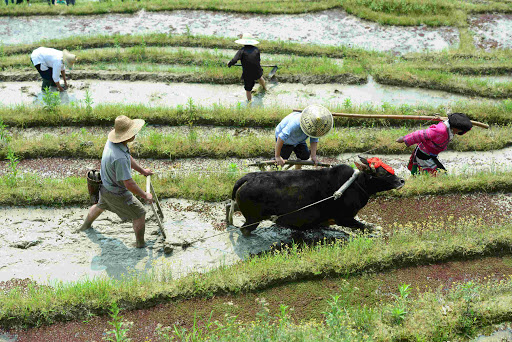
The best time to visit the rice terraces are sunrise. We know, getting up early is a pain! But if you really want to get the most out of your visit, early morning is the best. We left Ubud at about dawn to get to the fields just as the sun was rising. The office wasn’t even open yet, so we skipped paying the entrance fee. Not only are there much less people, but it’s so much cooler at this time of day. The rice fields are exposed to the sun with very little shade, so after the sun comes up you’re pretty much baking under the heat.
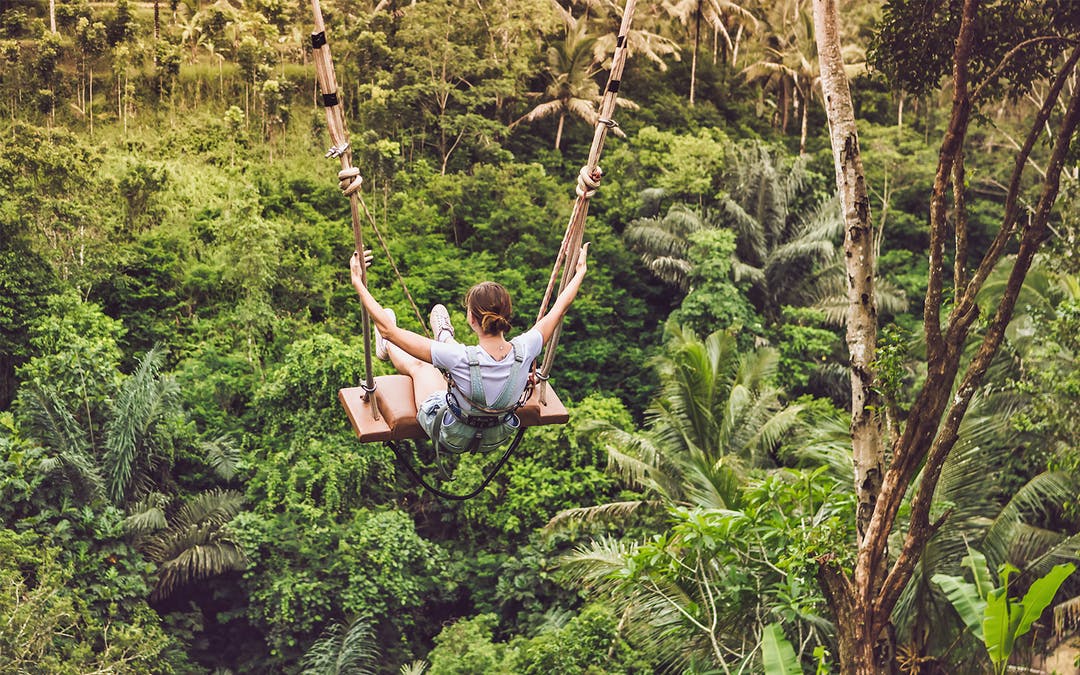
Bali Swing houses numerous jungle swings ranging from 10m, 15m, 20m and 78m above ground.
A treat for adrenaline junkies, each swing comes with its own unique thrill factor so depending on how ballsy you are, choose your swing wisely.
But regardless of the swing you choose, you will still be guaranteed a pretty spectacular view unlike any other—one that overlooks the river, tropical greenery and waterfall.
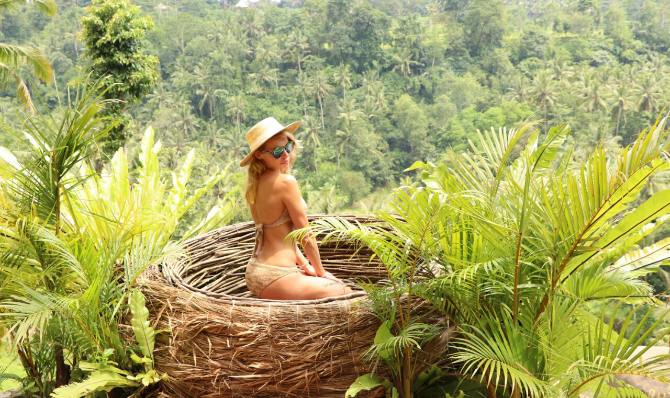
If you’re not a fan of heights but still want a beautiful photo to take away from the experience, consider one of their many ‘Hanging Nests’ that are scattered around the playground.
Wedged between two enormous palm trees, these nest-like structures serve as look-out points but also make for good spots for photos.
A ladder is positioned below it allowing guests to climb onto it and is eventually removed to make it seem—in photos—as if you were dangling in midair among the tall trees.
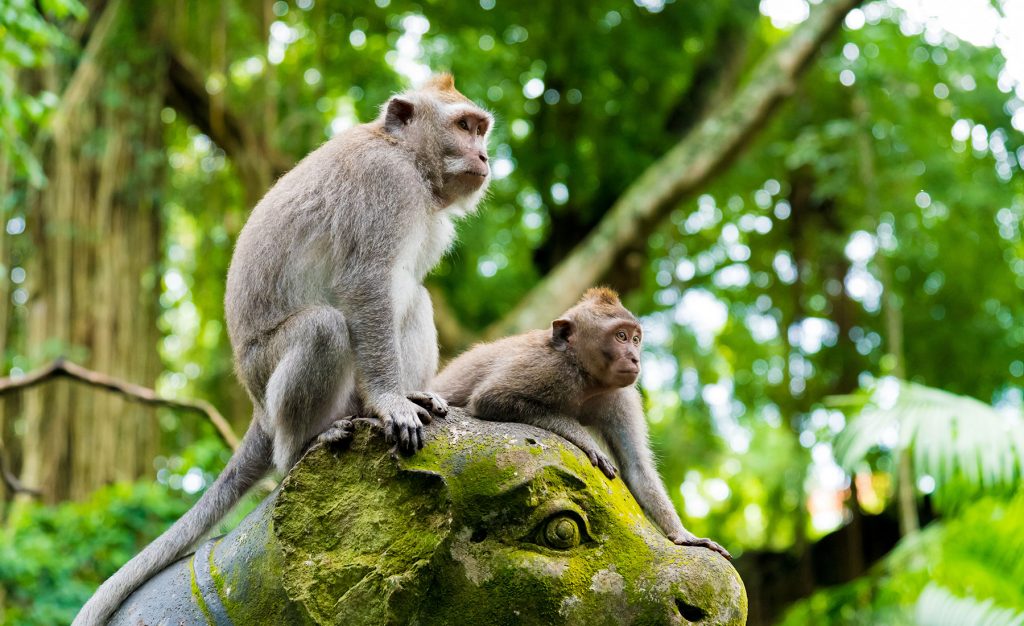
The Ubud Monkey Forest is known for its conservation efforts. Research and studies are regularly carried out for observing the monkeys’ health, diet and breeding habits. You can see these playful primates in their natural habitat, swinging through canopies, and feeding on bananas.
The forest also has several ancient temples with guardian statues covered in moss. Popular sites include the 14th-century Pura Dalem Agung Padangtegal and Pura Prajapati, which is dedicated to village funerals. Relics and statues are under dense foliage with little sunlight, resulting in a mysterious and ancient vibe.
Banyan tree roots hanging over shadowy dragon staircases offer exotic photo opportunities. You can also find Pura Beji, an ancient bathing temple located northwest of the main site of Ubud Monkey Forest.
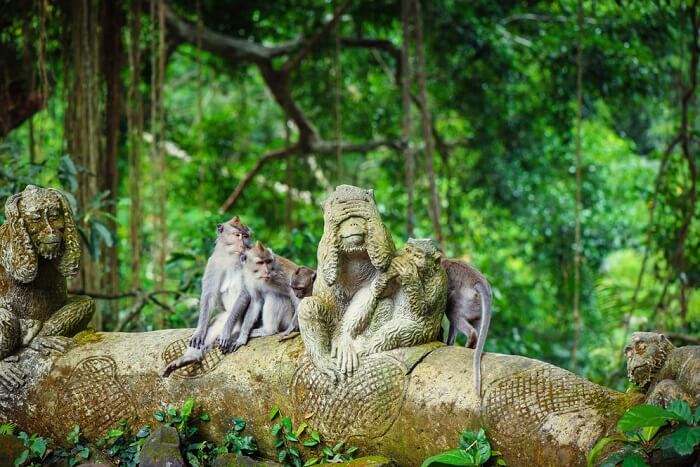
Ubud Monkey Forest has local guides and staff ready to assist you during your visit. You can learn about the cultural and historical significance of the sites and temples within the sanctuary grounds. The Wenara Wana staff might be able to help you retrieve items ‘stolen’ by the monkeys.
You should also avoid wearing any loose jewellery or clothing, as the monkeys may easily snatch a necklace or bag to find something interesting enough to eat. As with any holy site in Bali, women on their periods shouldn’t enter the temple grounds.